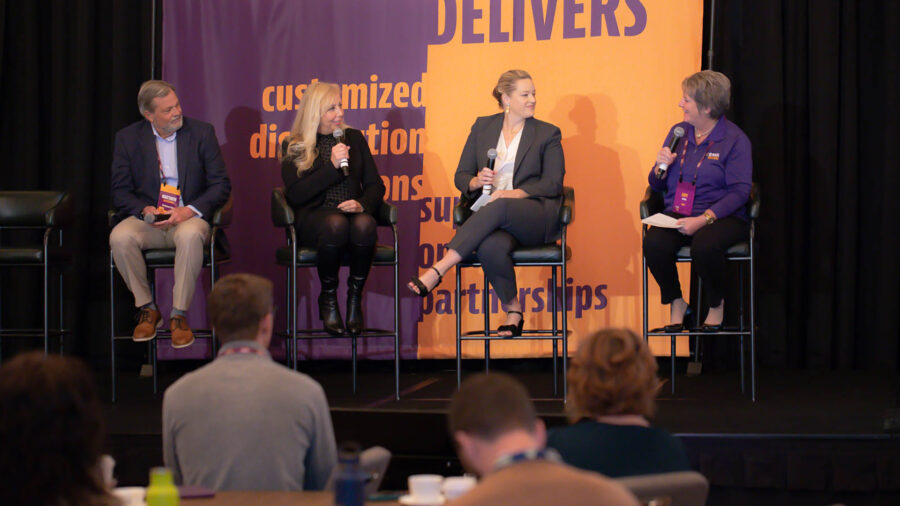NASHVILLE, Tenn. – For supply chain success, all stakeholders from manufacturers to operators must collaborate openly and effectively.
That was the general theme of the “Supply Chain Talent All Star Panel” at the DMA Nashville Experience. The event featured Tropical Smoothie Café SVP Supply Chain Kristin Kingery, Focus Brands SVP Supply Chain Anissa Mandell-Chance, and Firehouse Subs VP Supply Chain Matt Riddleberger.
DMA Vice President of Business Development Amy Snook opened the panel discussion by highlighting how consumers were more aware of the supply chain than ever before following the pandemic and related port shutdowns, freight delays, and trucker shortages.
This new consumer dynamic underscored a need for strong relationships along the supply chain and a strategy to go with it. Riddleberger noted that after four decades, the days of assumed 90+% fill rates were gone—instead, supply chain specialists had to look further up the chain to ensure a menu item like a limited-time offer (LTO) was feasible.
“Where is the manufacturer? How are they on raw materials? How are they on their packages? How’s the freight? All those things are now being communicated up to the c-suite. And previously, they just took it for granted,” he said.
Data Visibility Changes Operations
All three panelists agreed that operators have gotten better at “flying blind” over the past three years.
Mandell-Chance said a focus on data quality helped her organization better control its own supply chain, and that data quantity could often lead to more confusion. Instead, partnering with distributors and suppliers for end-to-end visibility made it easier to address issues before they happened.
“We want to do more about fire prevention than firefighting. And in order to do that, we have to have that visibility upstream,” she said.
Riddleberger said operators were looking for consistent data, too, and that many distributors and suppliers utilized different metrics. A more unified approach to this data would benefit the entire supply chain.
“In the old days, knowledge was power. The information was power. Now we’ve got to share with everybody we’re going to survive through this,” he said.
A Focus on People and Connections
The new dynamics of the distribution industry led to new hires for all three companies. Riddleberger noted Firehouse Subs had brought in an inventory control manager to issue daily critical inputs reports; Focus Brands established a data analytics team to automate tasks that were burning workers out; and Tropical Smoothie Café expanded its bandwidth in the inventory management space via new personnel hires.
Kingery said a culture of giving at Tropical Smoothie Café helped to stall against burnout. She added that the company encouraged franchisees to give truck drivers a free smoothie upon a delivery as one of the many ways the company helped to build camaraderie along the supply chain.
Mandell-Chance said Focus Brands had developed a steering committee to walk through decision-making processes. She said 9 out of 10 times, the original plan would work. The steering committee strategies, however, helped transform an essential process due to the increased collaboration when outlier problems arose, rendering the original plan ineffective.
According to Riddleberger, Firehouse Subs wanted to hire people from other parts of the supply chain to help the organization better understand upstream inputs. He also noted it was worth cultivating relationships with counterparts at distributors and suppliers.
Kingery agreed, saying that it was even more important for connections across a company’s hierarchy. She likened relationships between account managers and the c-suite to a cross-bar in a building.
“You know, there’s a reason in buildings that people put in crossbeams because they make things stronger. So, if you’ve got a straight line, you can break the beam real easy, but when you fill up a network and a web, it just makes that relationship a lot stronger,” she said.











